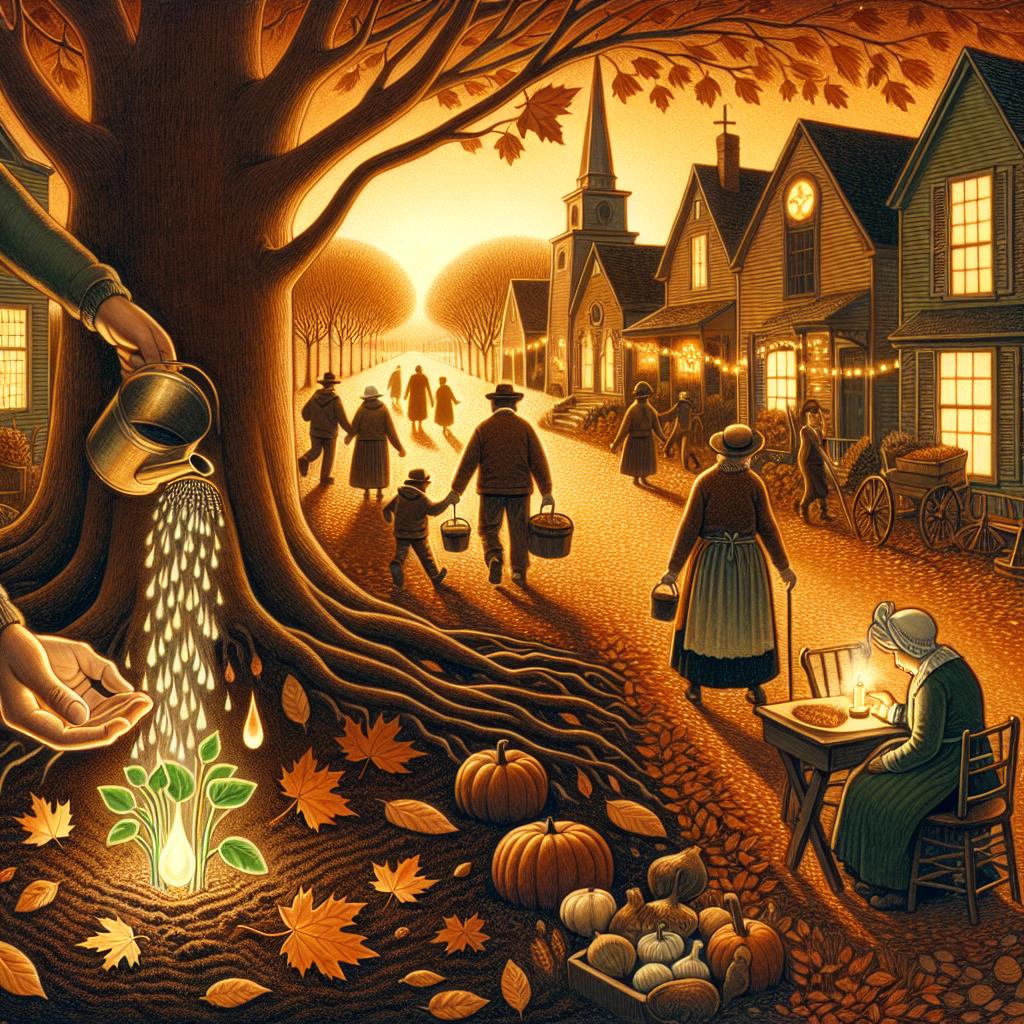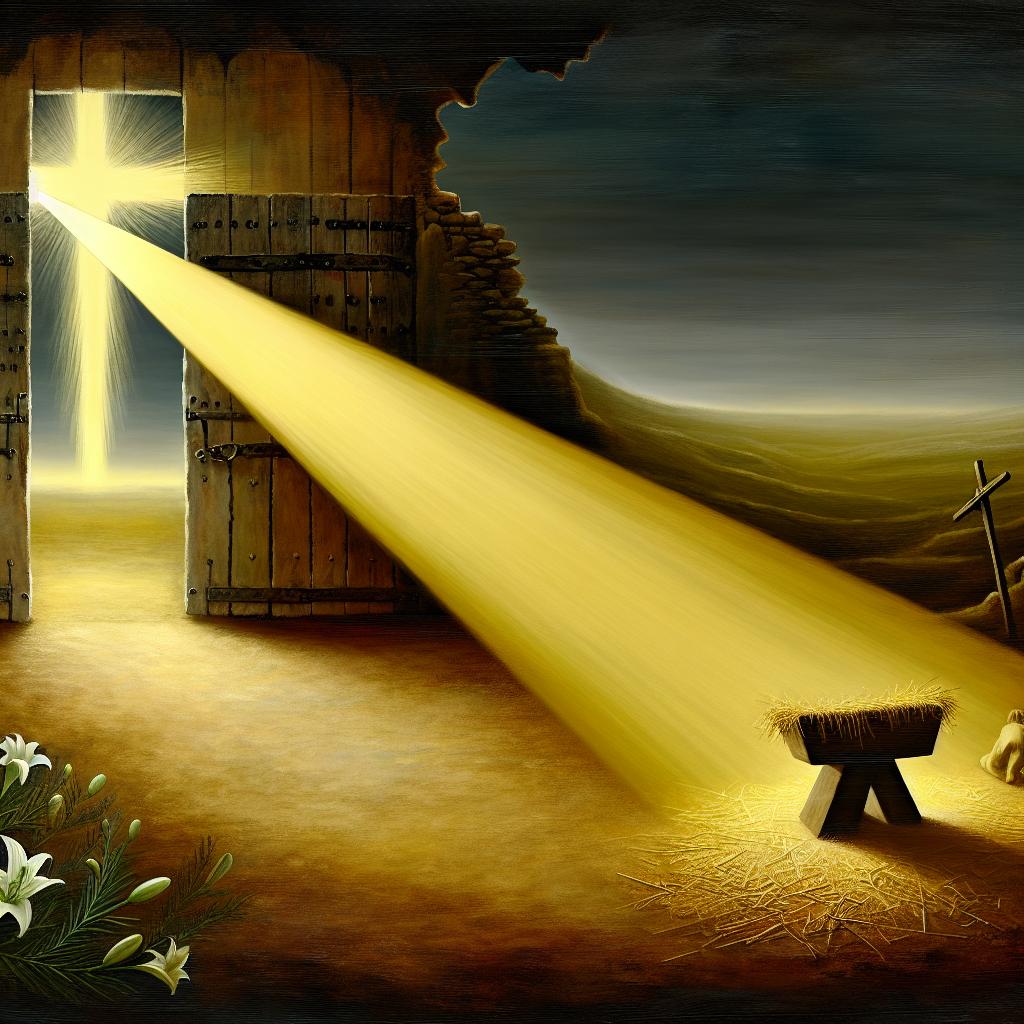Autumn Discipleship: Sowing a Gospel Legacy
Autumn Invitations: Sowing a Gospel Legacy in Ordinary Days
Autumn has a way of slowing us down. Leaves drift, days shorten, and the pace of the year naturally invites reflection. Scripture often uses the language of harvest to teach us about discipleship—about sowing what is right in ordinary life and trusting God with the reaping in due season (see Galatians 6:7–9). This is a season to weave together four threads that run through the Christian life: faithful endurance in suffering, belonging in the local church, intentional rhythms at home that shape legacy, and attentive gratitude for God’s presence in the everyday, as we are sowing a Gospel legacy.
1) The Autumn Pattern: Sowing a Gospel Legacy and Reaping the Harvest
Farmers don’t harvest what they never sow. In the same way, we cannot hope for a life of deep faithfulness if we neglect the daily, small practices that root us in Christ. A few autumn lessons for our souls as we’re Sowing a Gospel Legacy:
- Gratitude ripens courage. Naming the Lord’s provision today—food, breath, friends, church—prepares our hearts to face tomorrow’s trials with trust.
- Sowing feels slow, but it’s never wasted. Though we long for quick results, the Spirit often forms us through ordinary, repeated acts of obedience.
- God turns tears into harvest. Even in grief, he gathers a future joy we cannot yet see (Psalm 126:5–6).
Autumn’s rustling leaves whisper the same old promise: keep sowing—prayer, Scripture, hospitality, generosity—and trust the Lord of the harvest.
2) Why Showing Up to Church Matters More Than Ever
In an age marked by loneliness, anxiety, and depression, the simple act of attendance—showing up weekly to worship—forms us in ways we can’t manufacture alone. The Scriptures call us to gather so we can “stir up one another to love and good works” (Hebrews 10:24–25), and research increasingly confirms the wisdom embedded in this command.
Studies from Harvard’s Human Flourishing Program have linked regular religious service attendance with lower risks of depression and higher levels of well-being and social support (Harvard T.H. Chan School of Public Health). Meanwhile, the U.S. Surgeon General has warned of an “epidemic of loneliness” and urged communities to foster belonging (U.S. Surgeon General Advisory).
In other words, the local church is not just an event—it’s a God-given community that counters isolation, strengthens endurance in suffering, and helps us grow in holiness. As we worship, serve, and share the Lord’s Table, we are formed into people who can persevere with hope (James 1:2–4).
Three ways to lean in this fall:
- Commit to gathered worship. Make Sunday a non-negotiable rhythm of rest and renewal.
- Practice hospitality. Invite someone new over for a simple meal—no spectacle, just presence (Hebrews 13:2).
- Join a small group or class. Accountability and companionship nurture endurance and integrity.
3) Suffering, Injustice, and the God Who Delivers
The Bible never hides suffering or injustice. The Exodus story, for instance, is saturated with groans and oppression—and with a God who sees, hears, and delivers (Exodus 3:7–8). That same Lord is present in our pain today. We are called to persevere with trust, to lament honestly, and to pursue justice courageously—especially in the household of faith.
When the church faces grievous sin—like abuse or exploitation—the gospel compels a response marked by repentance, accountability, and protection of the vulnerable. Integrity is not optional; it is a core expression of love. Consider equipping your congregation with best practices in safeguarding. Organizations such as GRACE (Godly Response to Abuse in the Christian Environment) and training through Church Cares can help churches respond wisely and proactively.
Faithfulness in trials—whether personal pain or communal wounds—means we cling to the Redeemer and act with integrity. In doing so, we bear witness to a God who brings redemption out of brokenness.
4) Building a Gospel Legacy at Home
Legacy is not a trophy we keep on a shelf; it’s what we put in motion—habits, words, and loves that outlast us. The way we live in our homes forms an intergenerational impact. Whether you are single, married, or parenting, consider how the gospel shapes the atmosphere of your living room and your calendar.
For husbands, Scripture casts a vision deeper than clichés: to love with Christlike service, to lead with wisdom, and to lay down self for the good of the family (Ephesians 5:25). For parents, resisting idolatry—whether of achievement, image, or control—frees us to steward our children as God’s, not our own. For all of us, simple rhythms at home become seeds of discipleship that quietly grow over time.
Consider these autumn practices for sowing a Gospel legacy:
- Table prayers and Scripture. Keep it simple and steady—five minutes daily can reframe the week.
- Tech-free dinners. Give your attention as a gift; listen, ask good questions, linger.
- Weekly rest. Practice Sabbath rhythms that say “God is God, and I am not.”
- Hospitality as mission. Include neighbors, singles, and students; the table is a place of welcome and witness.
- Serve together. Visit a shut-in, write notes to those who are suffering, or prepare a meal for a family in need.
This is the stuff of legacy—the quiet sowing that shapes hearts toward purpose and hope.
5) Seven Simple Ways for Sowing a Gospel Legacy Today
- Take a gratitude walk. Name five evidences of God’s provision you see in creation this fall.
- Show up on Sunday. Pray on the way, sing like you mean it, and stay after to pursue one conversation that matters.
- Open your door. Schedule one act of hospitality this week—coffee, soup, or a potluck.
- Write a note to a sufferer. Remind them they are not alone and share a promise from James 1:2–4 or Psalm 34:18.
- Ask about safeguarding. Talk to a church leader about your congregation’s protection policies; offer to help strengthen them.
- Plant something. Put bulbs in the ground as a lived parable of waiting in hope for spring.
- Rest without guilt. Receive rest as a gift, not a reward. God’s love precedes your productivity.
6) The Greater Harvest We’re Waiting For
Every seed we sow in Christ points to a larger harvest—the day when Jesus gathers his people in perfect joy and justice. “The harvest is plentiful,” Jesus said, “but the laborers are few” (Matthew 9:37–38). Until that day, we sow with tears and joy, in fields close to home and in our local churches, trusting the One who never wastes a single seed.
As autumn settles in, let’s embrace the invitation: slow down, pay attention, show up, and sow. In church and at home, through suffering and in rest, God is shaping a people who will shine with the beauty of his redemption. Take heart—the Lord of the harvest is near.
Discover more from Elkleaf Publishing
Subscribe to get the latest posts sent to your email.




